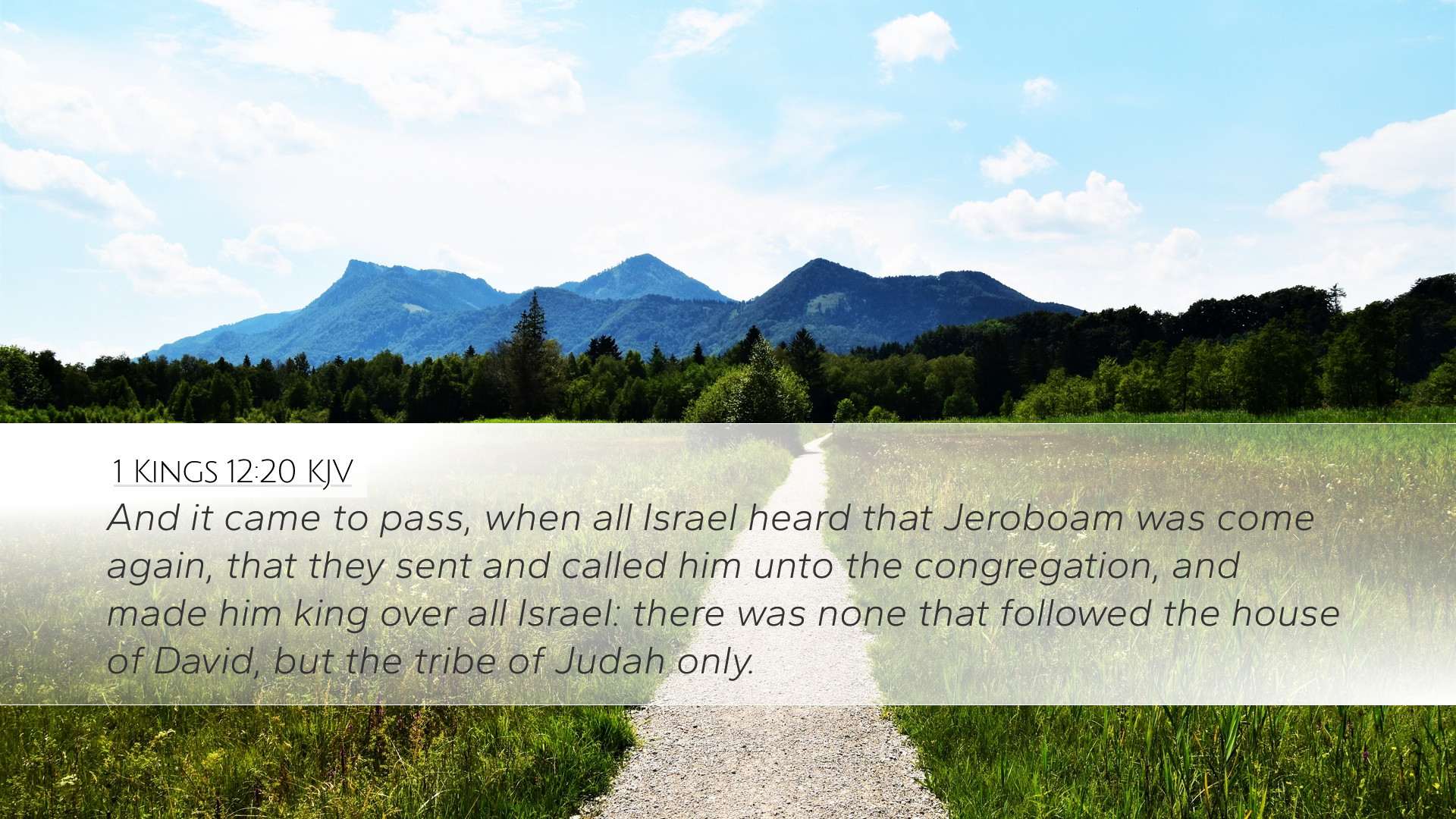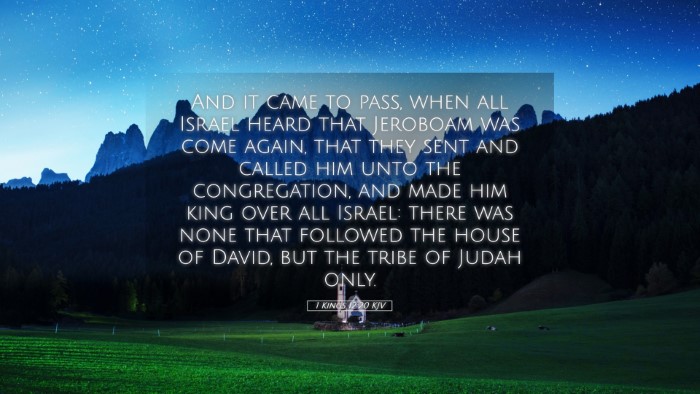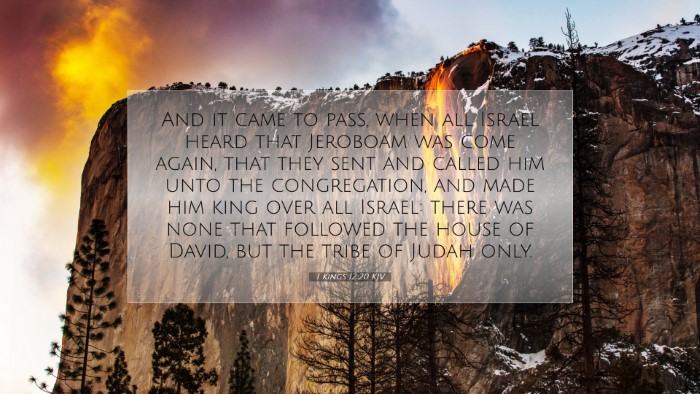Bible Commentary on 1 Kings 12:20
Verse: "And it came to pass, when all Israel heard that Jeroboam was come again, that they sent and called him unto the congregation, and made him king over all Israel: there was none that followed the house of David, but the tribe of Judah only."
Introduction
This pivotal moment marks a significant shift in the leadership of Israel, transitioning from the united monarchy under the house of David to the divided kingdoms of Israel and Judah. This commentary draws on insights from historical reflections, theological themes, and moral lessons prevalent in public domain commentaries by Matthew Henry, Albert Barnes, and Adam Clarke, providing depth for pastors, students, and scholars alike.
Contextual Background
The context of 1 Kings 12 highlights the growing tensions between the northern tribes of Israel and the southern tribe of Judah. After Solomon’s death, the people seek relief from heavy taxation and forced labor imposed during his reign. Jeroboam emerges as a key figure representing the discontent of the northern tribes.
Key Themes and Insights
-
The Role of Leadership:
Jeroboam's rise to power illustrates the people's shift from a divinely anointed leadership to one born out of political necessity. Henry emphasizes that God permitted this change, which ultimately leads to a fulfillment of prophetic judgment against Solomon's house due to idolatry and disobedience.
-
Covenantal Implications:
Barnes notes the rejection of Rehoboam's leadership as a profound moment where Israel forsakes the covenantal promises associated with the Davidic line. The split of the kingdom signifies a significant breach in God's intended plan for Israel, highlighting the serious consequences of sin and disobedience to Yahweh.
-
The Reaction of the People:
Verse 20 reveals the immediacy with which the northern tribes respond to Jeroboam's return. Adam Clarke points out that the call to Jeroboam reflects a collective desire for freedom and autonomy, pointing to a deeper dissatisfaction among the Israelites that would persist throughout the history of the divided monarchy.
Interpretations of the Text
-
Theological Reflection:
Henry reflects on God's sovereignty amid human choices. While the people choose Jeroboam, it is critical to recognize that God used this moment to further His redemptive purposes. The transition serves as a backdrop to the unfolding narrative of God's dealings with His people, marked by grace and judgment.
-
Historical Significance:
Barnes discusses the historical impact of this event, noting that the establishment of Jeroboam's rule leads to significant religious and political changes. The divergence sets a stage for future conflicts and illustrates the fracture of a nation once united under God’s covenant, which serves as a warning to all future leaders.
-
Lessons for Leadership:
Clarke emphasizes the importance of righteous leadership, indicating that the moral integrity of leaders is paramount in guiding a nation. The actions taken by Rehoboam contrast with those of Jeroboam, suggesting that leaders must be attentive to the needs and concerns of the people rather than strictly adhering to authority as is.
Divine Providence and Human Agency
The balance between divine sovereignty and human free will is a recurring theme found in commentaries. God raises up leaders and allows the people to choose, often leading to the consequences of those choices. This verse encapsulates that tension; while the Israelites turn to Jeroboam, it is within God’s overarching control and plan. This teaches theologians and students about the interplay of divine foreknowledge and human decision-making.
Conclusions and Applications
1 Kings 12:20 serves as a profound reminder of the fragility of human leadership and the dire consequences of turning away from God’s intended design for unity and faithfulness. Pastors and theologians should reflect on the importance of maintaining a heart aligned with God’s will, and the collective responsibility that leaders have towards their communities.
As the Church contemplates these truths, it would do well to heed the warnings illustrated in Israel's history—acknowledging that rebellion against God’s principles does not lead to lasting prosperity, but rather to division and strife. In the modern context, this narrative also encourages leaders to remain vigilant against the temptations of power, pride, and neglecting the voices of those they serve.


